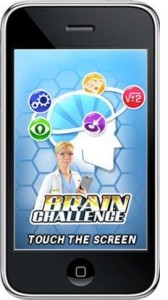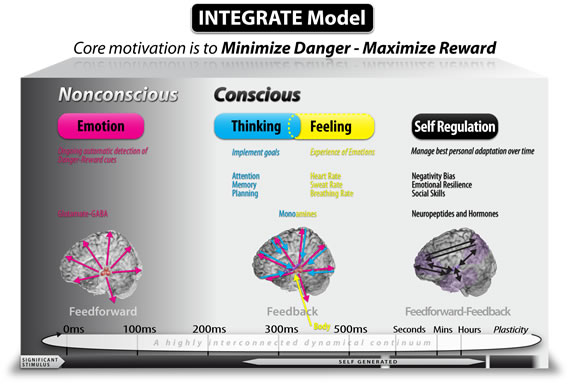Brain Challenge HD on Sale for Only $0.99
iPhone and iPad users can get Brain Challenge HD at a discount. If you like this brain teasing approach be sure to check out Brain Challenge 2, 3 and 4 by Gameloft.
Categories: Cognitive Decline, Memory and Learning, Other, Software Tags: games
Phosphatidylserine Improves Thinking in 10 Days
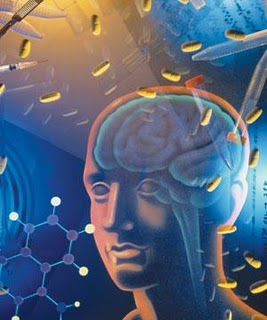 Phosphatidylserine is a supplement that some claim can stave off cognitive decline in the elderly and boost memory, learning, mood and decision-making in people of all ages. I have seen conflicting studies so I am always on the look out for new ones that are done with great scientific rigor and that might help settle the issue.
Phosphatidylserine is a supplement that some claim can stave off cognitive decline in the elderly and boost memory, learning, mood and decision-making in people of all ages. I have seen conflicting studies so I am always on the look out for new ones that are done with great scientific rigor and that might help settle the issue.
Found one recently that was presented at the 7th Annual International Society of Sports Nutrition Conference. It was a small study but it was double blinded and placebo controlled. You can read about it in, Study Shows PS Use Improves Cognition Prior To Exercise.
Here is the key finding:
“Cognitive performance was measured by the serial subtraction test (SST), a validated method in which subjects repeatedly subtract from 1,579 by intervals of seven. PS supplementation did reduce the time needed for a correct calculation by 21%, reduced the total amount of errors by 38% and increased the amount of correct calculations per error by 42% prior to exercise.”
To achieve this effect athletes took 400 mg a day for 10 days. I don’t think “safe and effective” dose guidelines have been established I have seen other studies and recommendations that use between 300-500mg daily.
I am not advocating the use of this supplement. I am however, interested in hearing from readers that use it. What dose, how long and what kind of benefits or side effects are you experiencing?
Categories: Cognitive Decline, Decision Making, Diet, Manage Emotions, Memory and Learning Tags: smart drugs
Integrated Brain Training Over the Web
MyBrainSolutions offers a software-based brain training program over the web. There are also some apps for your smart phone. You can sign up for the basic membership for free or pay $9.95/month for the premium service. With the premium service you complete a brain assessment and get training recommendations based on your specific needs. You also get access to more training exercises. The basic membership gives you four. With both memberships you get a personal dashboard (web page) that provides access to your tools and results.
The program appears unique in its emphasis on emotions, thinking, feelings and self-regulation and how they work together in an integrated way. You can watch a five minute video on the site that explains it. The emphasis on automatic processing of emotional queues (mainly facial expressions) and how that shapes our intuitions and decision-making, is right on. I have not seen any other brain training program tackle that.
I am using the basic membership and like what I see. Interested to hear from readers that have purchased the premium membership. Is it worth $10 per month? Thanks.
Categories: Executive Function, Manage Emotions, Memory and Learning, Software Tags: brain training, EQ, smart phone
Not All Naps Have Brain Boosting Effects
 Taking naps has been a hot topic for improving learning, memory and mental alertness for sometime. We have covered it several times in the Next Brain Blog. However, it does not always work. Turns out there is a knack to getting the brain boosting effects from napping. Psychology Today has an excellent article, Ultimate Napping: A How-To Guide, that provides specific guidelines. Some examples:
Taking naps has been a hot topic for improving learning, memory and mental alertness for sometime. We have covered it several times in the Next Brain Blog. However, it does not always work. Turns out there is a knack to getting the brain boosting effects from napping. Psychology Today has an excellent article, Ultimate Napping: A How-To Guide, that provides specific guidelines. Some examples:
- For younger nappers 10-20 minutes is ideal. Sleeping longer will leave you groggy not mentally alert.
- Pick your time, place and be sure to have sleeping gear – pillow, blanket and teddy bear.
- Drinking a caffeinated beverage right before you nap is a great way to wake up fully alert .
- Don’t stress if you don’t fully fall asleep. Just resting can rejuvenate.
Most of the suggestion fit my personal experience well. I have used napping for years. This illustrates that the techniques we use to improve brain function and cognitive performance are often very simple, but applying them effectively can be a bit tricky.
Very interested to hear from readers about specific napping tricks-of-trade that improve cognitive performance.
Categories: Lifestyle, Memory and Learning, Mental Focus Tags:
Mental Fitness Cards that Really Work
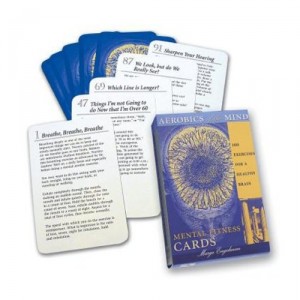 Couple of years ago I bought a pack of Mental Fitness Cards and started to experiment with them. You get 100 cards that provide very specific activities designed to maintain or even enhance the senses, memory, problem solving, linguistic abilities and numeracy. The cards come in a nice sturdy box and include a booklet that provides an overview and suggestions for how to use the cards.
Couple of years ago I bought a pack of Mental Fitness Cards and started to experiment with them. You get 100 cards that provide very specific activities designed to maintain or even enhance the senses, memory, problem solving, linguistic abilities and numeracy. The cards come in a nice sturdy box and include a booklet that provides an overview and suggestions for how to use the cards.
The cards are geared for seniors but I have found 12 that appear to be very useful in general.
One of my favorites is #91 Sharpen Your Hearing. The activity involves turning the volume down on your TV or talk radio show until you can hear but no longer make out what is being said. You then slowly turn it up until you can just barely but clearly hear what is being said. When you repeat this you should not have to turn it up as much to get words because you are learning to focus your hearing. The card talks about drawing lines a on sheet of paper to measure progress. I did not track with that but do it in the car where my radio gives me a number for the volume setting. This way I can measure progress exactly. I am not recommending that you do this in the car.
I am interested to hear from readers about other card-based mental fitness products and how they are using them.
Categories: Books, Cognitive Decline, Memory and Learning, Older Adult, Perception Tags:
Develop Your MOT – Multiple Object Tracking Skills
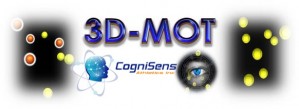 CogniSens Athletics is a small company dedicated to translating the latest neurophysics into tools for improving the cognitive performance of athletes. They just announced the release of 3D-MOT a three dimensional (3D) immersive training environment for developing the cognitive skills needed for multiple object tracking (MOT). It uses a computer and specialized goggles to teach you how to visually track more than one moving object at a time. A key cognitive skill in sports. To quote a news release:
CogniSens Athletics is a small company dedicated to translating the latest neurophysics into tools for improving the cognitive performance of athletes. They just announced the release of 3D-MOT a three dimensional (3D) immersive training environment for developing the cognitive skills needed for multiple object tracking (MOT). It uses a computer and specialized goggles to teach you how to visually track more than one moving object at a time. A key cognitive skill in sports. To quote a news release:
“D-MOT is a scientifically designed system for improving perceptual tracking skills by expanding an athlete’s capacity to absorb and process complex movement information. … players have shown that just one hour of distributed 3D-MOT stimulation yielded an average of over 50% increase in capacity to track at speed, with greater increases being realized with extended training. ”
 Most of us won’t have the opportunity to use such technology but I wonder if there is not more generally available options that produce some of the same effects. My guess is that some video games are an example.
Most of us won’t have the opportunity to use such technology but I wonder if there is not more generally available options that produce some of the same effects. My guess is that some video games are an example.
Consider Geometry Wars. Definitely need to be able to track multiple moving objects at once to get anywhere with this game. Indeed, in playing it, I have had to learn to defocus my eyes to increase my score. Most likely a sign that I am learning a new perceptual skill.
I am interested to hear from readers about examples of video games or other methods that can help us develop MOT (multiple object tracking) skills.
Categories: Mental Focus, Perception, Software, Training Tags: cognitive fitness, games, processing speed, sports
Handful of Pecans a Day for Brain Health?
 Making small lifestyle changes can improve brain function and cognitive performance. Often small changes are easy to do and if you make enough of them they should add up and have significant impact. We have documented a number of such changes on the Next Brain Blog but I am always on the lookout for new scientific studies that might suggest more.
Making small lifestyle changes can improve brain function and cognitive performance. Often small changes are easy to do and if you make enough of them they should add up and have significant impact. We have documented a number of such changes on the Next Brain Blog but I am always on the lookout for new scientific studies that might suggest more.
Take for example a recent study in the journal, Current Topics in Nutraceutical Research, reported on here.
“The study, conducted at the Center for Cellular Neurobiology at the University of Massachusetts Lowell, suggests adding pecans to your diet may delay the progression of age-related motor neuron degeneration.”
The work is being done by the vitamin E (antioxidant) in the nuts. Please keep in mind this is a preliminary study done with mice not people. Fortunately, it turns out the pecans are otherwise good for you with many vitamins and minerals and no cholesterol or sodium.
I am interested to hear from readers on other small-step lifestyle changes they have made to improve brain function or cognitive performance.
Categories: Cognitive Decline, Lifestyle Tags: vitamins
Improve Mental Performance with Lucky Charms
Research just reported in Psychological Science, Keep Your Fingers Crossed: How Superstitions Improve Performance, provides strong evidence that believing in lucky charms might not be so irrational. Indeed, they may be important for improving performance.
“Specifically, Experiments 1 through 4 show that activating good-luck-related superstitions via a common saying or action (e.g., “break a leg,” keeping one’s fingers crossed) or a lucky charm improves subsequent performance in golfing, motor dexterity, memory, and anagram games.”
Good luck superstitions don’t require magic or any supernatural forces to work. They work by boosting your confidence or belief that things will go your way. Your lucky quarter, shirt, number, and all of that can in fact enhance your brain function and cognitive performance. This in turn can improve your outcomes but only when the outcomes depend upon confidence. So this effect will not work for picking lottery tickets.
Interested to hear from readers about the lucky charms they use to get through intellectually or cognitive challenging situations.
Categories: Lifestyle, Memory and Learning, Mental Focus Tags: Mindset
Mozart Effect Does Not Improve Spatial Ability
 There is no doubt music has a big impact on how we think and feel. But can it be used to improve brain function and cognitive performance? We have explored this question with several posts on the Next Brain blog including one on the so-called Mozart effect. This effect claims that listening to Mozart’s music can increase your IQ.
There is no doubt music has a big impact on how we think and feel. But can it be used to improve brain function and cognitive performance? We have explored this question with several posts on the Next Brain blog including one on the so-called Mozart effect. This effect claims that listening to Mozart’s music can increase your IQ.
In an earlier post we found that there was some evidence that it can temporarily improve your spatial reasoning ability. Now the Science Daily reports on research from the University of Vienna that even dashes that hope. The study found that there is no evidence for the effect, not even a temporary improvement. It is important to note:
“Their comprehensive study of studies synthesizes the entirety of the scientific record on the topic. Retrieved for this systematic investigation were about 40 independent studies, published ones as well as a number of unpublished academic theses from the US and elsewhere, totaling more than 3000 participants.”
So this negative finding will likely stand. This of course does not mean that more active improvement techniques such as learning to play a musical instrument fail to boost cognitive performance.
Categories: IQ and EQ, Music and Audio Tags: Mozart Effect
Tai Chi for Cognitive Training?
Tai Chi is an ancient Chinese practice for linking mind and body in a martial art. Today it is a low-impact form of exercise and wellness that may improve a number of cognitive functions including mental focus, memory, managing emotions and perception.
Tai Chi involves a series of fluid, slow-paced motions and stretches that have been described as “meditation in motion”. The benefits of Tai Chi have just started to be formally studied. An in depth article on the Mayo Clinic website, Tai Chi: Discover the many possible health benefits, reports there is preliminary evidence for these benefits:
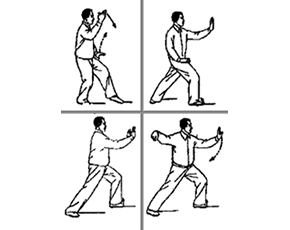 Reducing anxiety and depression
Reducing anxiety and depression- Improving balance, flexibility and muscle strength
- Reducing falls in older adults
- Improving sleep quality
- Lowering blood pressure
- Improving cardiovascular fitness in older adult
- Relieving chronic pain
- Increasing energy, endurance and agility
- Improving overall feelings of well-being
 Clearly these benefits go beyond improving brain function and cognitive performance. Getting started in Tai Chi is not hard. There are many fine resources available for little cost. You can produce results in as little as 8-12 weeks.
Clearly these benefits go beyond improving brain function and cognitive performance. Getting started in Tai Chi is not hard. There are many fine resources available for little cost. You can produce results in as little as 8-12 weeks.
Check out this 5 minute free video for a decent introduction. It won’t make you an expert but it should be enough to determine if you want to try more. There is a product pitch but it is soft.
I am interested in readers’ suggestions for resources for learning Tai Chi, especially those that emphasize improving brain function and cognitive performance.
Categories: Ancient Ways, Manage Emotions, Memory and Learning, Mental Focus, Perception, Training Tags: cognitive fitness, embodied cognition, exercise

